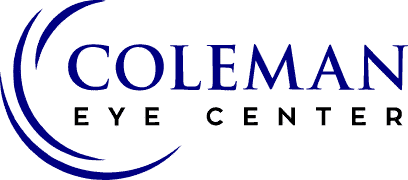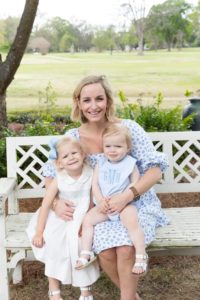“What is the best age to have my child’s eyes checked?” This is a question I hear often from parents. With a new school year underway, we thought it was the perfect time to address this question. Vision plays a huge role in a child’s development. According to research from the American Academy of Optometry, eye and vision disorders can lead to problems in a child’s normal development. Vision problems can also affect school performance, social interactions, and self-esteem. Because of this, making sure your child’s eye health is developing normally from a young age is of utmost importance. The American Academy of Optometry and the American Academy of Ophthalmology set recommendations about when to have children’s eyes checked. These are helpful guidelines in deciding when it’s time to schedule an eye exam for your child.
The first year…
In most cases, basic eye screenings are already done in the child’s first year of life. Soon after birth, a doctor in the hospital does a basic eye screening . This is a quick check done in the first days of life to ensure no gross abnormalities are noted. If the doctor does see anything abnormal, he would likely recommend an eye exam earlier than usual. As long as everything appears normal, the next screening is done at the 6 or 12 month wellness check-up at your pediatricians’ office. These screenings are important and useful, but remember they are not complete eye exams. You know your child better than anyone. If you have concerns about your child’s vision or eye health, deciding to schedule an eye exam for them is never wrong.
Signs to look for…
No child is too young to have a complete eye exam, especially if you are concerned about vision problems. Although a child may not know if they can see clearly, you can take cues from them. Do you feel like your child can’t see things on the television across the room? Does he run into objects around him? Does she hold books really close to her face? These are just a few examples of cues from your child about their vision. Are you concerned your child is not seeing clearly? Do you notice your child squints most of the time? Have you noticed an eye turning in or out? If so, we recommend scheduling a complete eye exam sooner rather than later. As with most healthcare concerns, the earlier we address any issues found, the better the outcome we can expect.
On the other hand, if your child has developed normally in the first few years and you have not noticed any concerns about their vision in this time, I recommend having the child’s first complete eye exam between 3 and 5 years of age. This age range is critical when it comes to learning. Vision plays a huge role in their play and learning in these years. During these exams, we focus on making sure the child has normal ocular health. We can determine if they need glasses or not and make sure their eyes are working well together (binocular vision). All of these components are important in making sure the child’s vision is adequate to set them up for success in these critical years of learning.
Conclusion…
Eye exams for children are nothing to stress about. We can use different techniques to ensure we get the most reliable information and measurements about their eye health. Again, if you think there is an issue to be addressed, no child is too young for an eye exam . As a mother myself, I know first-hand the desire of all parents to just want the best for our children. I hope this answers any questions you may have about when to have your kids’ eyes checked! If you have additional questions, don’t hesitate to give our office a call. We are always happy to help! Call us today if you’re ready to schedule your child’s eye exam!
–Dr. Preslee T. Magee, OD
Dr. Preslee Magee, Lilly, and George


